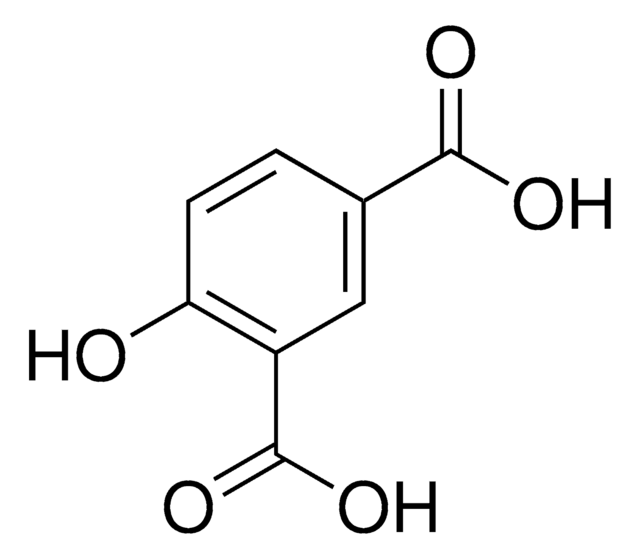PHR1047
Fenolo
Pharmaceutical Secondary Standard; Certified Reference Material
Sinonimo/i:
Idrossibenzene
About This Item
Prodotti consigliati
Grado
certified reference material
pharmaceutical secondary standard
Livello qualitativo
agenzia
traceable to USP 1524806
Densità del vapore
3.24 (vs air)
Tensione di vapore
0.09 psi ( 55 °C)
0.36 mmHg ( 20 °C)
Famiglia di API
hexylresorcinol, guaiacol, salicylic acid
CdA
current certificate can be downloaded
Temp. autoaccensione
1319 °F
Limite di esplosione
8.6 %
tecniche
HPLC: suitable
gas chromatography (GC): suitable
P. eboll.
182 °C (lit.)
Punto di fusione
40-42 °C (lit.)
Densità
1.071 g/mL at 25 °C (lit.)
applicazioni
cleaning products
cosmetics
food and beverages
personal care
pharmaceutical (small molecule)
Formato
neat
Temperatura di conservazione
2-8°C
Stringa SMILE
Oc1ccccc1
InChI
1S/C6H6O/c7-6-4-2-1-3-5-6/h1-5,7H
ISWSIDIOOBJBQZ-UHFFFAOYSA-N
Cerchi prodotti simili? Visita Guida al confronto tra prodotti
Descrizione generale
Pharmaceutical secondary standards for application in quality control, provide pharma laboratories and manufacturers with a convenient and cost-effective alternative to the preparation of in-house working standards.
Applicazioni
Risultati analitici
Altre note
Nota a piè di pagina
Prodotti consigliati
Prodotti correlati
Avvertenze
Danger
Indicazioni di pericolo
Classi di pericolo
Acute Tox. 3 Dermal - Acute Tox. 3 Inhalation - Acute Tox. 3 Oral - Aquatic Chronic 2 - Eye Dam. 1 - Muta. 2 - Skin Corr. 1B - STOT RE 2
Organi bersaglio
Nervous system,Kidney,Liver,Skin
Codice della classe di stoccaggio
6.1A - Combustible acute toxic Cat. 1 and 2 / very toxic hazardous materials
Classe di pericolosità dell'acqua (WGK)
WGK 2
Punto d’infiammabilità (°F)
177.8 °F - closed cup
Punto d’infiammabilità (°C)
81 °C - closed cup
Scegli una delle versioni più recenti:
Possiedi già questo prodotto?
I documenti relativi ai prodotti acquistati recentemente sono disponibili nell’Archivio dei documenti.
I clienti hanno visto anche
Articoli
Separation of 2-Chlorophenol; 2,4-Dichlorophenol; 2,4,6-Tribromophenol; 2,4,6-Trichlorophenol; 2,4-Dinitrophenol; Pentafluorophenol; 2-Methylphenol, analytical standard; 2,3,4,6-Tetrachlorophenol; Pentachlorophenol; 4-Nitrophenol; 2-Bromophenol; 2,3,5,6-Tetrachlorophenol; 2,3,5-Trichlorophenol; 4-Chloro-3-methylphenol; 2,4,5-Trichlorophenol; 4-Methylphenol, analytical standard; 2,4-Dimethylphenol; 2-Nitrophenol; 3-Methylphenol, analytical standard; Phenol; 2-Methyl-4,6-dinitrophenol; 2,3,4-Trichlorophenol; 2,6-Dichlorophenol; 2,3,4,5-Tetrachlorophenol
Protocolli
HPLC Analysis of Cresols and Phenol on Astec® CYCLOBOND® I 2000
Separation of 2-Nitrophenol; Pentachlorophenol; 2-Bromophenol; Phenol; 4-Nitrophenol; 3-Methylphenol, analytical standard; 4-Chloro-3-methylphenol; 2,4-Dichlorophenol; 2,3,4,6-Tetrachlorophenol; 2-Methylphenol, analytical standard; 2,4,6-Trichlorophenol; 2,4-Dimethylphenol; 2-Chlorophenol
HPLC Analysis of Phenols on SUPELCOSIL™ LC-8
Il team dei nostri ricercatori vanta grande esperienza in tutte le aree della ricerca quali Life Science, scienza dei materiali, sintesi chimica, cromatografia, discipline analitiche, ecc..
Contatta l'Assistenza Tecnica.





